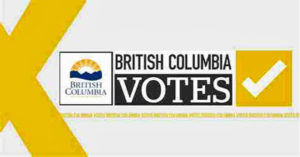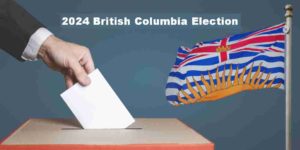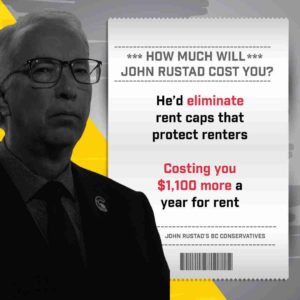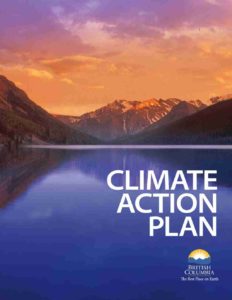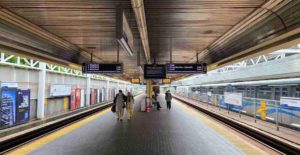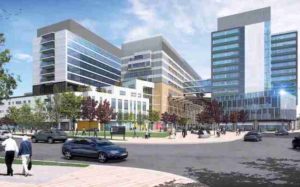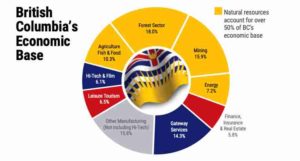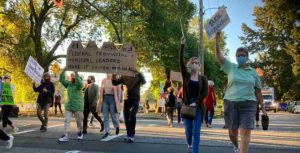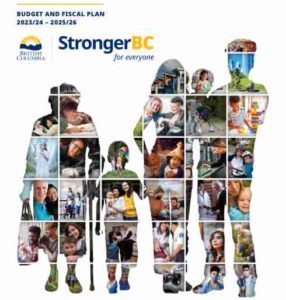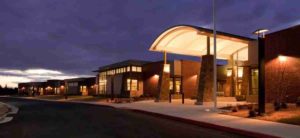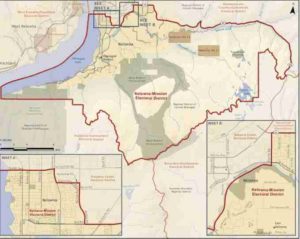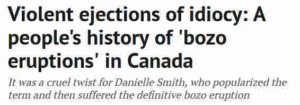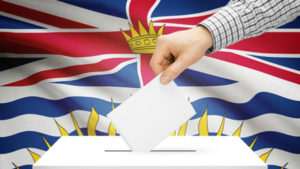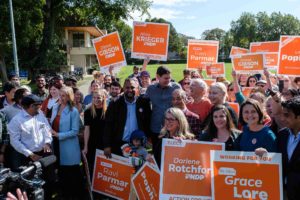
Premier David Eby rallies the troops | Yet another misstep in a failing 2024 BC NDP campaign for office
Premier David Eby and the British Columbia New Democratic Party are on track to lose the 2024 provincial election.
Whether the result on Election Night, October 19th, will allow the BC NDP the opportunity to save face by retaining 39 to 42 seats, or whether British Columbia’s hapless New Democrats will be wiped out on October 19th — leaving the party with a rump caucus of 25 electeds — is a story that can only be told 18 days from now.
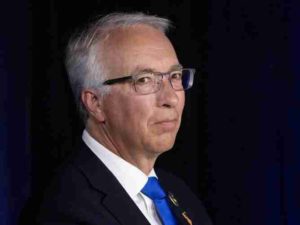
John Rustad, leader of the Conservative Party of B.C., and the next Premier of British Columbia
In Part 1 of a 3 part series VanRamblings will publish this week on the sorry fate of one of British Columbia’s two main legacy political parties — which for the past 7 years has held government in our province — today VanRamblings will set about to explore the 15 or so ridings across the province the B.C. New Democrats are guaranteed to lose — consigning the party to an ignominious defeat — and provincial ridings that are currently on the bubble, leaning John Rustad Conservative.

We’re going to skip around a bit, but because losses for the B.C. NDP on Vancouver Island, long a New Democratic Party stronghold, will prove so devastating to the governing party — but not for much longer — let’s start on the Island, shall we?
You can reference detail about the devastation the B.C. New Democrats are about to experience of Vancouver Island, by clicking/tapping on this VanRamblings post .
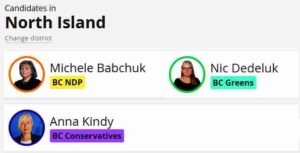
To read Vote Mate candidate profiles of the North Island candidates, click or tap here.
B.C. New Democrat Michele Babchuk, who won the seat in a John Horgan pandemic sweep in November 2020, will lose to physician Dr. Anna Kindy, who lost her ability to practice when Provincial Health Officer Dr. Bonnie Henry ordered that health care workers who had not been vaccinated for COVID-19 would not be allowed to practice medicine in the province. Dr. Kindy — a potential Minister of Health in a John Horgan government — led a delegation of 200 North Island residents to raucously protest outside B.C. Legislature, expressing their disdain for the “health” edicts of the B.C. New Democratic government. In 2024, it’s payback time.

Courtenay-Comox. With support for the Green Party in the basement, political pundits suggest Courtenay-Comox will be a tight two way race, with B.C. Conservative candidate Brennan Day set to win the riding over incumbent Ronna-Rae Leonard — who only won her seat by the slimmest of margins, in a traditional right-of-centre seat — on October 19th. Not for no reason has John Rustad been front and centre in the riding multiple times since the election kick off.
Victoria-Beacon Hill. Held by the B.C. NDP since 2005, incumbent Grace Lore, currently the Minister of Children and Family Development, is in a tight three-way race with Green Party of B.C. leader Sonia Furstenau, who moved from her Cowichan riding after redistribution, and B.C. Conservative candidate, Tim Thielmann. According to the most recent internal party polling, there’s a very real possibility / probability Mr. Thielmann could prove victorious on Election Night.
Ladysmith-Oceanside. Adam Walker, elected as the NDP candidate in the riding in the 2020 B.C. election, and booted from the party for undisclosed reasons in September 2023, is running in 2024 as an Independent, with the support of the Green Party. Stephanie Higginson, a past president of the B.C. School Trustees’ Association, is the B.C. NDP candidate. The B.C. Conservative candidate, Brett Fee, is a small business owner, with a degree in Political Science and Criminology. Ordinarily, the riding would be solidly NDP, but the candidacy of Adam Walker throws a spanner into NDP expectations for a win, allowing a probable victory for Mr. Fee. This one’s gonna be a nailbiter come election night.

To read Vote Mate candidate profiles of the Nanaimo-Lantzville candidates, click or tap here.
Crime and public safety are the issues that will see former BC NDP MLA for Chilliwack — in 2024, a celebrated law and order B.C.Conservative candidate — Gwen O’Mahony, win this riding in a walk on Election Night. Nanaimo-Gabriola remains safe for B.C. NDP incumbent and Minister Social Development and Poverty Reduction, Sheila Malcolmson — a bit of good news for Dippers.
That’s a possible / probable loss of five seats for New Democrats on Vancouver Island, maybe more — all but certain losses in at least three of those ridings.
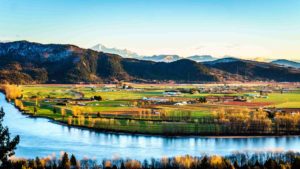
Enough with the foofaraw. Time to get down to brass tacks.
The B.C. NDP are rock solid to lose six seats, from Cloverdale to Chilliwack.
Langley. A two seat loss for the B.C. New Democrats.
To wit: High profile B.C. Conservative Elenore Sturko will deny the B.C. NDP’s Mike Starchuk a second term representing Surrey-Cloverdale.
Langley. As we write above, a two seat loss for the B.C. New Democrats.
1. B.C. NDP incumbent Megan Dykeman will lose her Langley-Walnut Grove seat to B.C. Conservative candidate Misty Van Popta, a Municipal Councillor in the Township of Langley.
2. Incumbent B.C. New Democrat Andrew Mercier, Minister of State for Workforce Development, will be defeated on Election NIght by the B.C. Conservative candidate Jody Toor, who holds a double PhD in Doctor of Integrative Medicine and Doctor of Humanitarian Services with the Board Of Integrative Medicine.
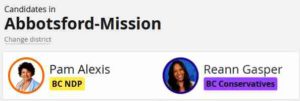
The Fraser Valley is traditionally a very conservative region of our province. Such will prove to be the case in 2024, when B.C. NDP incumbent Pam Alexis, Minister of Agriculture and Food prior to dissolution of the Legislature, will be trounced by the B.C. Conservative’s Reann Gasper, a Fraser Valley real estate agent.
And, finally, while we’re taking a look at ridings along the south arm of the Fraser River: Chilliwack, where the B.C. NDP will lose both seats, with B.C. New Democrat incumbent Dan Coulter going down to defeat to B.C. Conservative candidate Heather Maahs, a well-respected Chilliwack School Trustee since 2008.

In the riding of Chilliwack-Cultus lake, the B.C. NDP’s Kelly Paddon is also on her way out, to be replaced by high profile, Indigenous B.C. Conservative candidate Á’a:líya (A’aliya) Warbus, who was born and raised in Stó:lō Territory, with deep family roots in politics and activism, as the daughter of former Lieutenant Governor of British Columbia Steven Lewis Point.
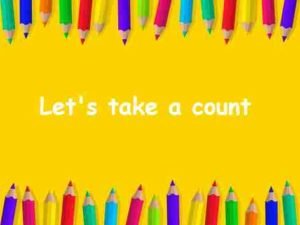
At least three probable losses on Vancouver Island, and six guaranteed losses for the B.C. NDP along the south arm of the Fraser River. At dissolution, the B.C. New Democrats held 55 seats in the Legislature. The loss of 9 seats would leave the B.C. NDP with 46 seats, one shy of a majority in the 93-seat B.C. Legislature.
And, heck, we’ve only just begun our exploration of ridings the B.C. NDP will lose.
Susie Chant, the one-term B.C. NDP incumbent in the North Vancouver-Seymour riding will lose her seat to B.C. Conservative Sam Chandola, an award-winning technology entrepreneur, come Election Night.
Janet Routledge will lose her Burnaby North seat to Michael Wu, a small business owner, and an Auxiliary Member with the RCMP who works with the Combined Forces Special Enforcement Unit. Mr. Wu speaks fluent Mandarin and Cantonese.
Let’s skip over to Vernon-Lumby.
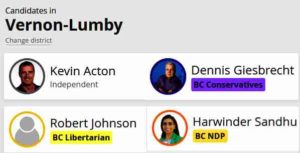
Harwinder Sandu, who most unexpectedly won the Okanagan riding of Vernon-Lumby in 2020, in 2024 will be soundly defeated by the B.C. Conservative candidate in the riding, Dennis Giesbrecht, who brings to his run for office a lifetime of invaluable experience in the energy, forestry and ship building industries.
Thus far we’re up to a 12-seat loss for the B.C. New Democrats — and, heck, we’ve not written about the two additional Surrey seats that will be won by B.C. Conservatives on Election Night, and all of the seats along the north arm of the Fraser River, from the five Tri-Cities seats, and Maple Ridge-Pitt Meadows and Maple Ridge East, all of which seats are on the bubble, leaning heavily in the direction of electing a swath of B.C. Conservative candidates to the B.C. Legislature.
In a column we wrote last week covering most of the Lower Mainland ridings, we wrote about the three ridings in Richmond currently held by the B.C. NDP, at least two of which will swing to the B.C. Conservatives on Election Night.
Prospects for a majority victory for David Eby’s New Democrats in the 2024 British Columbia provincial election look dire, indeed.
A generous count thus far suggests a 17-seat loss for the incumbent government, leaving them with 38 seats in the British Columbia Legislature.
Not all is lost: David Eby’s New Democrats will pick up three seats they’ve not held before, come Election Night: Vancouver-Langara, Cowichan and Kootenay-Rockies.
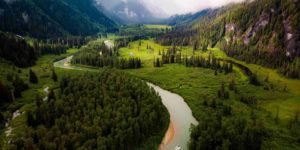
Here’s what our sources in the B.C. NDP and the B.C. Conservatives are telling VanRamblings: at this point in time, given how the B.C. NDP campaign has fared up until today, and the momentum John Rustad’s B.C. Conservatives have experienced the first week of the campaign, 18 days out from Election Day, VanRamblings’ sources in both mainstream parties tell us that the B.C. New Democrats will likely hold on to only 41 seats, for a 14-seat loss on Election Night.
There are an additional 16 seats that are on the bubble, we are told, that could go either way. VanRamblings’ sources in both political parties believe that 32 seats represents the floor for the New Democrats. Anything less than 35 seats for the B.C. NDP on Election Night, voters across B.C. can expect David Eby to tender his resignation as B.C. NDP leader, when he gives his concession speech.
VanRamblings’ sources in both parties believe the likely outcome on Election Night will allow the New Democrats to hold on to 39 to 42 seats.
The above said, a strong possibility still exists that the B.C. New Democrats could pull out a win on October 19th, securing 48 to 52 seats, by keeping Courtenay-Comox and Victoria-Beacon Hill in the fold, as well as Vernon-Lumby in the Interior, while retaining both Susie Chant’s seat in North Vancouver-Seymour, and Janet Routledge’s Burnaby North seat, with both Lisa Beare — B.C. NDP Minister of Post-Secondary Education and Future Skills — and Bob D’Eith retaining their Maple Ridge seats. Add to those numbers, B.C. NDP pick ups in Vancouver-Langara, Cowichan and Kootenay-Rockies, and to any seasoned observer, the 2024 British Columbia provincial election is far from decided 18 days out from Election Day.
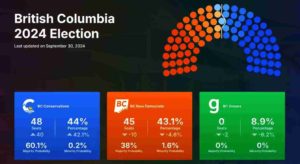
Quitto Maggi’s Mainstreet Research poll, published on Monday, September 30, 2024
Projected seat count on Election Night, for all three B.C. political parties …
NEW @MainStResearch BC projection. Here are the results:
? Conservatives: 54 seats, 45.7%.
?NDP: 39 seats, 41.7%.
?Green: 1 seat, 8.9%.Chances of winning:
?Conservatives: 80.8%.
?NDP: 19.2%.
?Green: 0%#bcpoli— BcPolitics (@BcPolitics1759) September 29, 2024
Philippe J. Fournier at 338.com published his latest compilation poll on Monday.
338Canada British Columbia update | September 30, 2024
?NDP 48
?CPBC 44
?BCG 1[47 seats needed for a majority]
Details here → https://t.co/2Rq5PHYgSx
En français ici → https://t.co/0L4CEsmzRd pic.twitter.com/ebHuYBm1as
— Philippe J. Fournier (@338Canada) October 1, 2024
Tomorrow on VanRamblings we will write about why it is that a decent, hard working, incredibly skilled B.C. New Democratic government who mean well for our province, may go down to defeat to an unschooled crew of (far) right leaning folks who have no experience in government, and who will spend the first year and a half in the Legislature trying to figure out where the washrooms are located, never mind governing for the benefit of all British Columbians.
On Thursday, we’ll write a prescriptive column on what David Eby — in particular, because this election is turning out to be a referendum on David Eby’s governing style — and our beloved B.C. New Democrats can do to right the ship and claim victory on October 19th, or at least save the furniture with a showing in the forties.
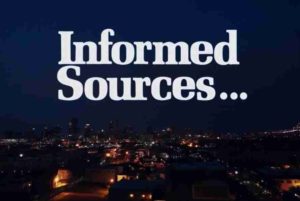
In a conversation Sunday afternoon with our friend, architect and former Vancouver Park Board Commissioner Bill McCreery, he asked about why we’re such a smarty pants on why the B.C. NDP will lose the 2024 provincial election, and just where the heck are we getting the information we publish?
The answer: Initially our primary source was the Hotel Pacifico podcast featuring Mike McDonald — the knower of all things British Columbia politics, who has spent time in all 93 ridings across the province and knows each of these ridings intimately and well — Geoff Meggs, former Chief of Staff to Premier John Horgan, and no slouch himself when it comes to understanding B.C. politics, and the very excitable (we’ve loved that about him since 2017, when we saw him bouncing around the Legislature the day John Horgan’s government was sworn into power … although Mr. Zussman’s ever present enthusiasm seems to drive Mr. McDonald nuts), Richard Zussman, Global BC’s skilled and informed Legislative reporter.
In addition to the above, we’ve done our own research on the ridings we’ve written about, reading the local newspapers online, and more. We also listen to coverage of the provincial election on CBC’s morning broadcast, The Early Edition. We are just as addicted to Baldrey’s Beat, at 10:05am on CKNW’s Mike Smyth show. We also read all of Mr. Baldrey’s columns in various of our community newspapers.
We never miss Global BC’s Newshour, most particularly when Keith Baldrey and Richard Zussman are talking about the election. Keith Baldrey and Richard Zussman, on Global BC’s Focus BC insist that Vancouver-Langara, Cowichan and Kootenay-Rockies will be pick ups for the New Democrats on Election Night.
And, finally, VanRamblings has our own well-developed and informed sources within both the B.C. New Democratic Party campaign for office, as well as the B.C. Conservative campaign, folks we speak with on an almost daily basis.
At age 74, we’re something of an old fogey and lack the energy we once did — for most elections we’ve written about in the past, 20 hour days for weeks on end was de rigeur to our approach to coverage … we’ve reduced that to six to eight hours a day now, although we’ve pulled an all-nighter or two this election cycle.
We’ve got lots we want to say, and to write, which we’ll do in the days to come.

VanRamblings’ friend and neighbour, raconteur and politico extraordinaire, Bill Tieleman — who we love with all our heart — expressed concern to us this past weekend about our contention that David Eby and the B.C. New Democrats will go down to defeat in the current election.
Why are we — a tried-and-true 61-year member of the NDP — writing so despairingly about the prospects of our beloved NDP? We suggested to Bill, why (in part, we’re sounding the alarm, another part arising in response to a current health issue that has recently come to the fore … time’s a wastin’, we suggested to Bill).
“You must forgive my penchant for optimism, despite daunting odds. We won a majority government in 1996, against a favoured, well-funded foe. So long odds don’t intimidate me at all. You may still be right in what you’ve been writing, but I continue to think the NDP’s several advantages will prevail in this fraught election.”
Bill Tieleman, respected longtime political strategist, commentator and political pundit
From Bill’s lips to God’s ears. May all that is right and good prevail.






